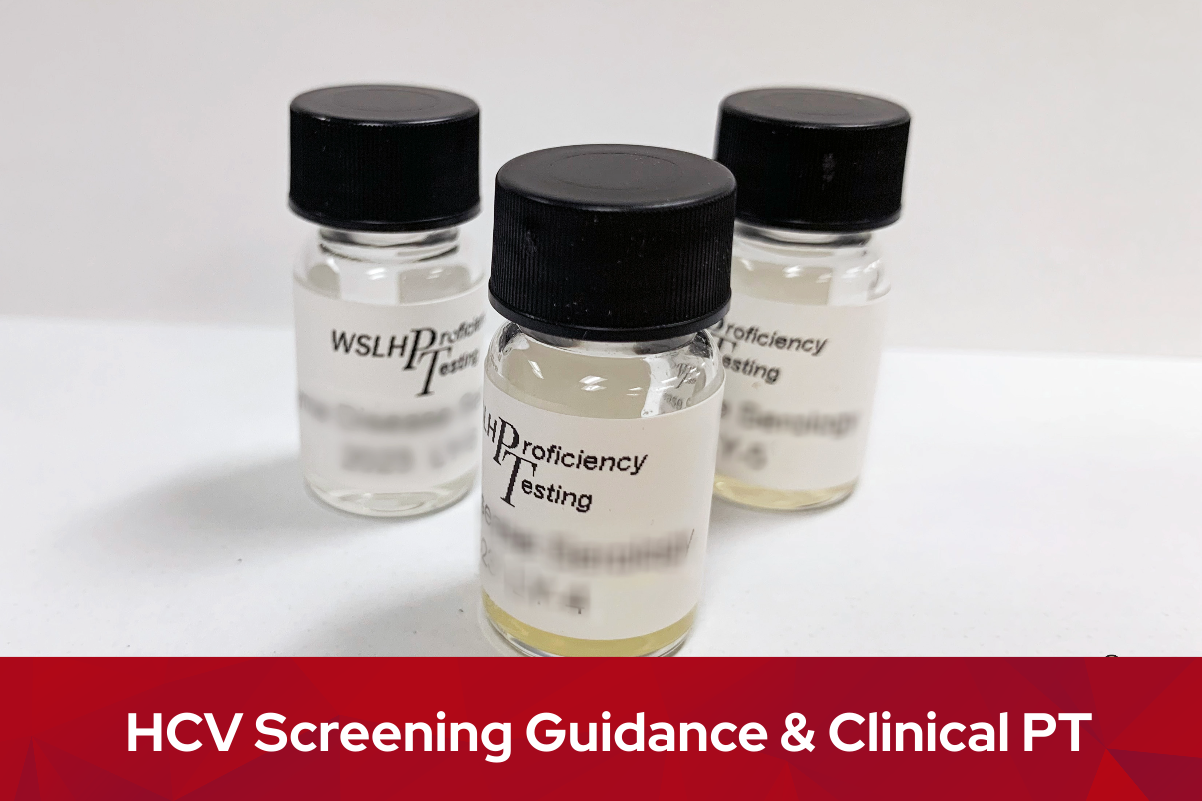Hepatitis C is a global health issue affecting at least 2.7 people in the United States. In fact, because of the public’s barriers to Hepatitis C screening, it might actually be closer to 4 million. We know the Hepatitis C virus (HCV) as the “silent killer” because 75% of those with it don’t know they’re sick until it’s serious. From 2015 to 2019, more cases of Hepatitis C were found among adults of reproductive age, with over 63% of all HCV infections occurring in individuals aged 20-39.
To increase early detection of HCV in patients, the Center for Disease Control and Prevention (CDC) now advises a one-time Hepatitis C screening for all adults (18 and over), and for those who are pregnant. Thankfully, there are many life-saving therapies available today; but, without increased access to accurate testing for all, many will miss the early detection needed for these treatments to be effective. Comprehensive proficiency testing programs are a crucial tool in the battle against Hepatitis C, supporting early detection, improving staff skills, and contributing to better global health results.

Underscoring the need to increase public access to Hepatitis C screenings, the CDC has provided updated information on how to ensure screenings are complete and accurate. Historically, about one-third of all individuals tested for HCV did not receive an HCV RNA test, when the HCV antibody test was reactive. In July 2023, the CDC released updated operational guidance, emphasizing the need to standardize Hepatitis C screenings in the United States. The CDC provides data indicating that reflex testing requiring single-visit sample collection resulted in higher rates of accurate diagnosis of Hepatitis C. While guidance on the implementation of reflex testing has helped clinical laboratories make significant steps toward achieving national HCV elimination goals, there are many communities that still face barriers to obtaining accurate and complete Hepatitis C screenings. These barriers include a lack of screening protocol, dedicated full-time staffing, and staff competency requirements. The CDC does provide an alternative recommendation, for instance, when following their HCV operational guidance is not attainable:
“If HCV RNA testing is not feasible and a person tested is not immunocompromised, do follow-up testing for HCV antibody to demonstrate seroconversion. If the person tested is immunocompromised, consider testing for HCV RNA.”
The inability at this time to uniformly implement reflex testing or needed follow-up HCV RNA testing across all communities in the United States is underscored by a recent study in diagnostics. This study compares the diagnostic accuracy of Point-Of-Care (POC) HCV viral load assays to laboratory-based testing, concluding that POCT HCV viral load tests are very accurate. This study aligns itself with the World Health Organization’s (WHO) recommendations to use POC HCV viral load assays as an additional strategy to promote access to confirmatory viral load testing and treatment. Given that capacity at the local and state levels can vary widely in the United States, there may be more studies and guidance to help communities, particularly rural communities, similarly negotiate limited access to laboratory services.
As HCV screening volumes trend upward, one barrier to diagnostic testing is assuring staff competency. To address these barriers, the CDC outlines recommendations such as who to test, when to test, how to interpret results, and proper documentation. Depending on your role and protocol in your state, passing proficiency may be required before administering Hepatitis C waived antibody tests. For instance, in the state of New Mexico, nurses and other certified staff must complete training with a passing competency prior to administering a Hepatitis C waived antibody test, such as the OraQuick HCV Rapid Antibody Test. The New Mexico example illustrates the importance of setting goals and standards to assure healthcare staff receives training prior to administering a HCV-waived antibody test. Participating in proficiency testing programs that are compatible with all waived methods is one way that all healthcare professionals conducting Point-of-Care (POC) testing can assure accuracy in testing and documentation of results.
To ensure that all participating healthcare professionals maintain competency in conducting and interpreting the results of HCV POC tests, laboratories and other medical facilities enroll in HCV proficiency testing programs. WSLH Proficiency Testing is now offering the Hepatitis C waived proficiency testing program for 2024. This program is compatible with waived methods including OraQuick HCV Rapid Antibody Test, and includes three 1ml liquid serum samples shipped twice per year. The soaring demands for Hepatitis C diagnostics require a strategic and steadfast approach. Prepare your staff with our Hepatitis C waived proficiency testing program, Item PT04192. View our Clinical PT Catalog and Ordering page for more details.
With the growing need for Hepatitis C diagnostics, it is crucial to implement a well-planned and consistent strategy. As public health organizations, laboratory experts, and the broader healthcare systems come together, our progress toward reliable, precise, and early HCV detection relies on the solid foundation of clinical proficiency testing. In this dynamic landscape, WSLH Proficiency Testing’s commitment to provide quality proficiency testing services and to improve staff competency in HCV antibody testing remains unwavering. By implementing standardized procedures and continuous quality evaluations, we can pave the way for enhanced HCV management and, ultimately, contribute to better global health outcomes.

